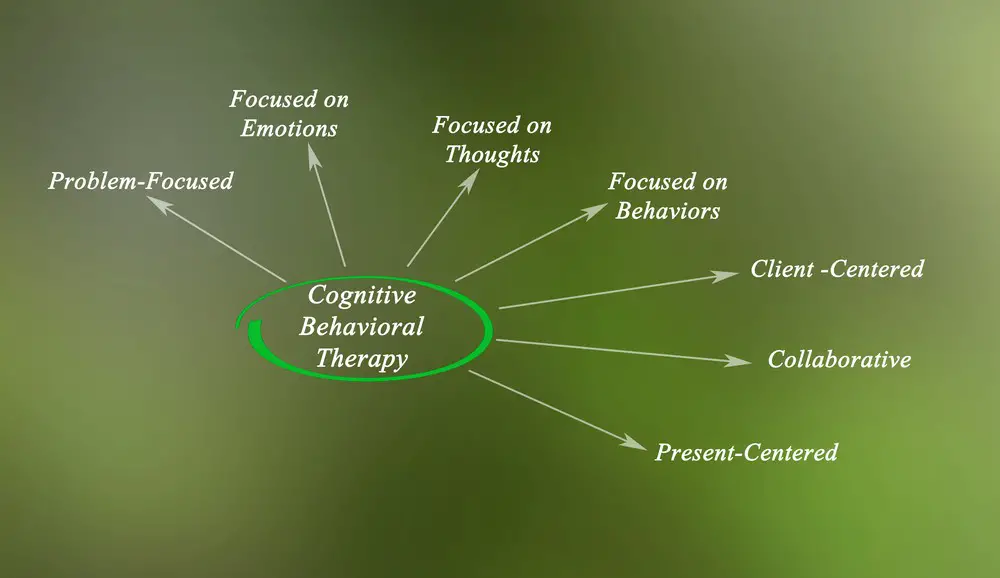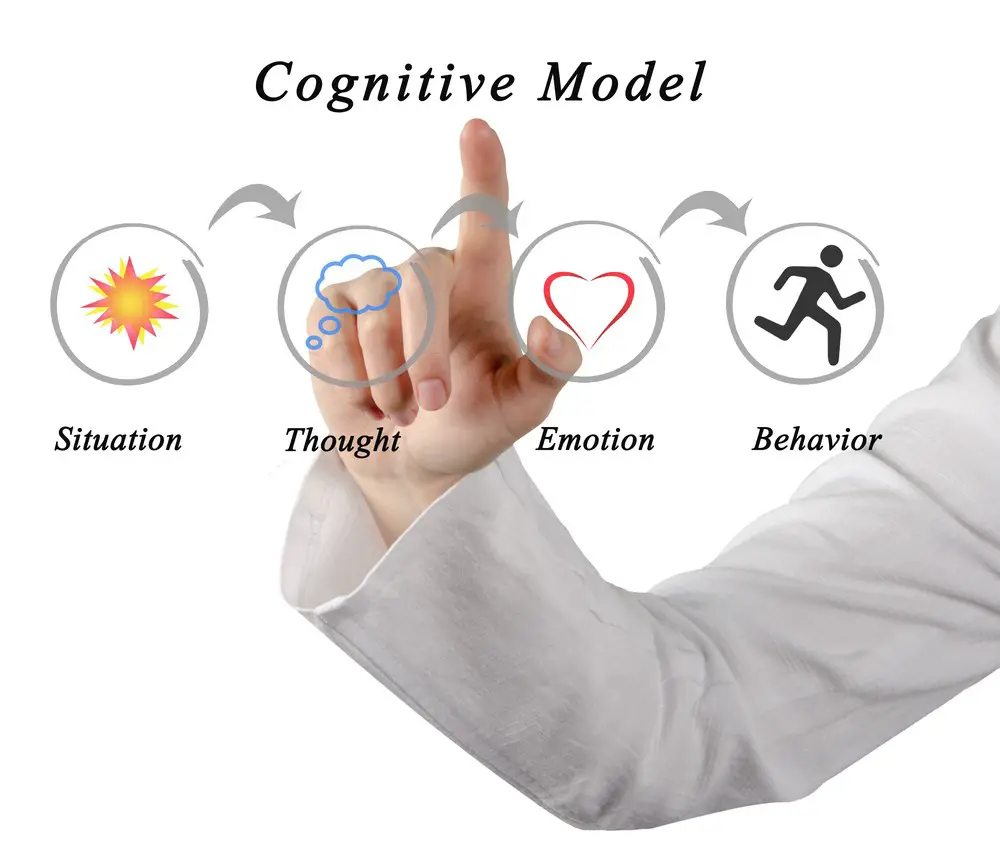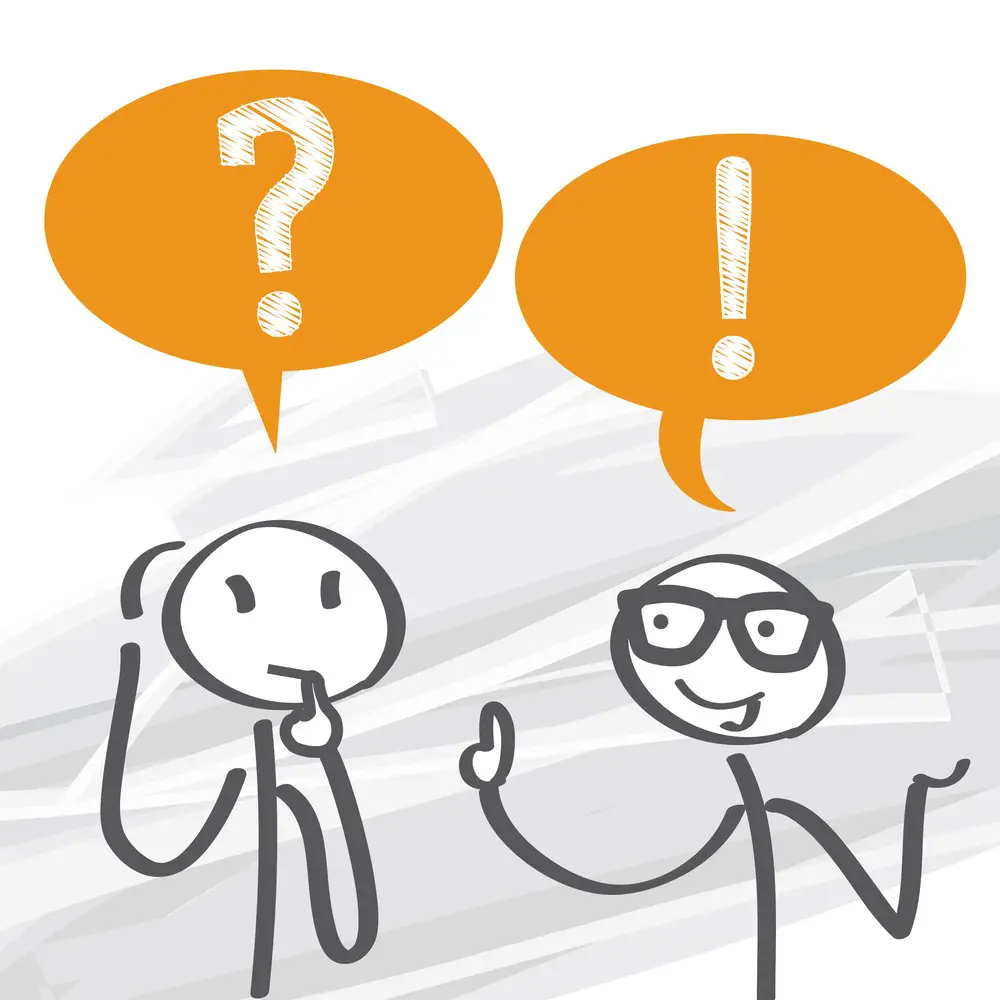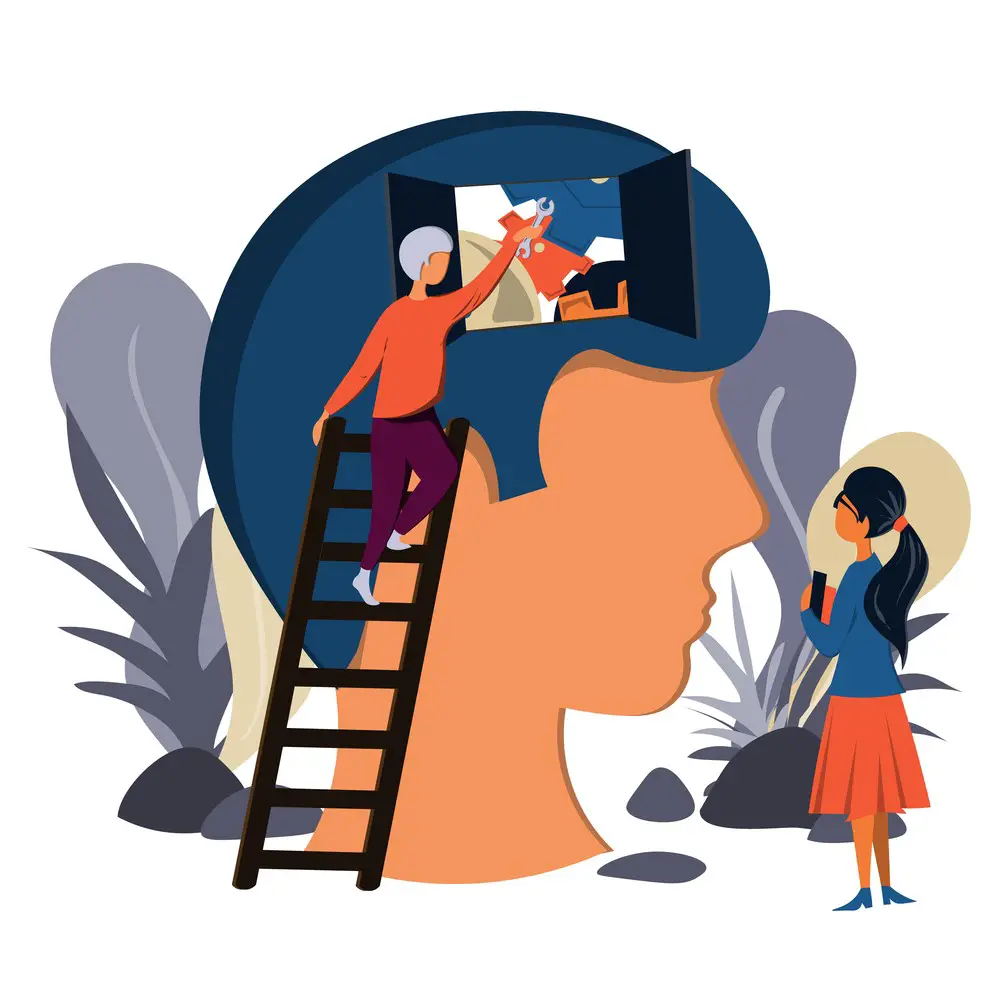As a BetterHelp affiliate, we receive compensation from BetterHelp if you purchase products or services through the links provided
- Improve interpersonal relationships
- Reduce stress and anxiety
- Increase communication skills
- Gain valuable coping skills
Attachment-based therapy has the potential to restore fractured relationships and bring peace of mind. By exploring past connections, clients can develop valuable skills for building healthier bonds with loved ones—all from a safe distance! With online sessions readily available, individuals in need can access critical coping strategies to help them better express themselves and create more meaningful interactions. Learn how this type of psychotherapy relieves everyday stressors like anxiety or insomnia by assisting people in gaining insight into their patterns of behavior!
Table of Contents:
What is Attachment-Based Therapy?
Attachment-Based Therapy is a type of psychotherapy that focuses on the emotional connection between individuals and how it affects their behavior. It is based on the idea that early relationships with caregivers impact our current relationships, emotions, and behaviors. This therapy helps people explore these connections to understand themselves better and improve their relationships with others.
Definition of Attachment-Based Therapy:
Attachment-based therapy seeks to help individuals identify patterns in their lives that may be rooted in past experiences or attachment styles developed during childhood. Through this exploration, clients can gain insight into why they act in specific ways and develop healthier coping strategies for managing stressors in life.
Benefits of Attachment-Based Therapy:
This form of therapy effectively treats various mental health issues such as anxiety, depression, trauma, relationship difficulties, and even insomnia. Additionally, it can help individuals become more aware of their own needs while developing empathy toward others’ needs and providing them with tools to manage difficult emotions more effectively. There are several different types of attachment-based therapies available, including Cognitive Behavioral Therapy (CBT), Dialectical Behavior Therapy (DBT), Emotionally Focused Couples/Family Therapies (EFTs), and Interpersonal Psychotherapy (IPT). Each one utilizes different techniques depending on the individual’s needs, but all focus on understanding the underlying causes behind behaviors or feelings so that new strategies can be developed for dealing with life’s challenges more effectively.
Who Can Benefit from Attachment-Based Therapy?
Attachment-based therapy is a type of psychotherapy that focuses on the relationship between individuals and their primary caregivers. It helps people understand how early relationships can shape their current behavior, thoughts, and feelings. Attachment-based therapy can benefit adults, children, adolescents, and couples struggling with trauma or relationship difficulties.
Adults with Trauma Histories:
Attachment-based therapy can help adults who have experienced traumatic events better understand how those experiences have shaped them as individuals. Through this therapy, they may gain insight into why they feel the way they do about specific situations or relationships. They may also learn new coping strategies to manage difficult emotions related to past traumas.
Children and Adolescents with Trauma Histories:
Attachment-based therapy can provide a safe space for exploration and growth for children and adolescents who have experienced trauma. This therapy allows them to process difficult emotions in a supportive environment while developing healthier ways of relating to others around them. Couples experiencing difficulty in their relationship may benefit from attachment-based therapy by exploring how early relationships impacted each partner’s behaviors within the couple dynamic today. Through this understanding, couples can develop more effective communication skills that foster a healthy connection between both partners involved in the relationship.
How Does Attachment-Based Therapy Work?
It is based on the idea that our early attachments to caregivers shape how we relate to others in our adult lives. Attachment-based therapy aims to help people identify patterns in their current relationships, explore the impact of their early experiences, and develop new coping strategies for healthier connections with others.
The Therapeutic Relationship as a Foundation for Change:
Attachment-based therapy begins by creating a safe space between therapist and client where trust can be built. This secure relationship is the foundation for exploring difficult emotions, thoughts, and behaviors without fear or judgment. Through this process, clients learn how to form trusting relationships with other people in their lives.
Exploring the Impact of Early Relationships on Present Behaviors and Feelings:
In attachment-based therapy sessions, clients are encouraged to look at how their past experiences have shaped who they are today. By understanding these influences more deeply, they can understand why certain behaviors or feelings arise when interacting with others in different situations. Clients may also gain insight into why certain types of relationships feel comfortable while others do not feel safe or healthy for them emotionally.
Key Takeaway: Attachment-based therapy is psychotherapy that helps individuals understand and heal from past relationships. It focuses on creating a safe, trusting relationship between therapist and client as the foundation for exploring difficult emotions, thoughts, and behaviors. Through this process, clients can gain insight into how their early experiences have shaped who they are today and learn new coping strategies for healthier connections with others.
Main Benefits
:• Establishing a secure therapeutic relationship
• Exploring the impact of early relationships on present behaviors and feelings
• Developing new coping strategies for healthier connections
What to Expect During an Attachment-Based Therapy Session?
This therapy can benefit those who have experienced trauma or complicated relationships. During an attachment-based therapy session, clients will explore how early relationships have impacted their current behaviors and feelings while developing new coping strategies to help them form healthier relationships in the future.
Creating a Safe Space for Exploration and Growth:
To progress during an attachment-based therapy session, the client and therapist must create a safe space to discuss difficult emotions without fear of judgment or criticism openly. The therapist should provide unconditional support throughout the process and encourage clients to express themselves freely without feeling embarrassed or ashamed about their thoughts or feelings. Attachment-based therapists understand that exploring traumatic experiences can be emotionally challenging, so they are trained to provide emotional support when needed. They may also use techniques such as guided imagery, relaxation exercises, role-playing activities, and art projects which can help clients better manage difficult emotions like anxiety and depression while processing painful memories from the past. Additionally, therapists may assign homework tasks such as journaling which encourages self-reflection outside of sessions allowing further exploration into personal issues at one’s own pace in a safe environment.

Finding an Appropriate Therapist for Attachment-Based Therapy
Finding someone with the qualifications and experience is essential when looking for an appropriate therapist for attachment-based therapy. Qualifications to look for in an attachment-based therapist include a master’s degree or higher in psychology, counseling, social work, marriage, and family therapy or a related field; training in evidence-based practices such as cognitive behavioral therapy (CBT) and dialectical behavior therapy (DBT); experience working with individuals with trauma histories; and certification from a professional organization such as the American Psychological Association (APA).
It is also essential to ask questions when interviewing potential therapists.
Questions may include: What type of training have you had? How long have you been practicing? Do you specialize in any particular areas? Are there any techniques that you use specifically for attachment-based therapy? What do your sessions typically involve? How often will we meet? What are your fees and payment policies?
Additionally, it can be helpful to get referrals from friends or family members who have had positive experiences with their therapists. It is also beneficial to read reviews online about different practitioners to decide which therapist might best suit them. Finally, it is essential to remember that finding the right fit between client and therapist takes time, so do not give up if the first few attempts do not seem like they will work out.
FAQs
What does attachment-based therapy do?
It helps individuals to identify and understand their attachment patterns and develop healthier ways of relating to others. This therapy explores how past relationships have shaped an individual’s current behavior, thoughts, and feelings. Through this process, clients can learn how to build secure attachments with other people to improve their overall mental health. Attachment-based therapy also provides tools for managing stress, anxiety, depression, and other challenging emotions more effectively.
What therapy is best for attachment issues?
Attachment issues can be addressed with a variety of therapies, including Cognitive Behavioral Therapy (CBT), Dialectical Behavior Therapy (DBT), and Eye Movement Desensitization and Reprocessing (EMDR). CBT helps individuals identify and challenge negative thoughts that lead to maladaptive behaviors. DBT focuses on mindfulness, emotion regulation, distress tolerance, and interpersonal effectiveness. EMDR is a form of psychotherapy that uses bilateral stimulation to help the brain process traumatic memories more effectively. Each therapy has its unique approach to helping individuals manage attachment issues; an individual needs to work with their therapist to determine which treatment best suits their requirements.
What are the 4 types of attachment?
1. Secure Attachment: This type of attachment is formed when a child feels safe and secure in their relationship with their caregiver, allowing them to explore the world without fear or anxiety.
2. Anxious-Ambivalent Attachment: This type of attachment occurs when a child experiences inconsistent caregiving from their primary caregiver, resulting in feelings of insecurity and mistrust.
3. Avoidant Attachment: This type of attachment develops when a child’s needs are consistently ignored or dismissed by their primary caregiver, leading them to become emotionally distant and avoidant towards relationships with others.
4. Disorganized Attachment: This type of attachment arises out of chaotic caregiving environments where the parent is either unpredictable or frightening to the child, leaving them confused and unable to rely on anyone for comfort or security.
How long is attachment-based therapy?
Attachment-based therapy typically lasts between 8 and 12 weeks, depending on the individual’s needs. It is an intensive form of psychotherapy that focuses on understanding and addressing the underlying causes of anxiety or insomnia. During this time, clients work with their therapist to develop new coping skills, learn to regulate emotions more effectively, and build healthier relationships with themselves and others. The goal is to help them gain insight into their behavior patterns so they can make lasting changes in their lives.
Cognitive Therapy
Cognitive Therapy: What is it? Cognitive therapy is a type of psychotherapy that changes how people think and behave. It helps individuals identify negative thoughts and beliefs contributing to their mental health issues, such as depression or anxiety. Cognitive therapists use various techniques to help clients learn how to challenge these unhealthy thought patterns and replace them with healthier ones. This can improve emotional regulation, problem-solving skills, and positive social interactions.
How Does Cognitive Therapy Work?
The main goal of cognitive therapy is for individuals to become aware of their thinking processes so they can make changes to improve their mental health. During sessions, the therapist will ask questions about the client’s thoughts and feelings related to specific situations or experiences to gain insight into how they respond emotionally. The therapist then works with the client on developing new ways of thinking about those situations or experiences, which can lead to different behaviors or reactions when faced with similar circumstances in the future.
Benefits Of Cognitive Therapy
One benefit of cognitive therapy is that it helps individuals develop coping strategies for dealing with difficult emotions such as anger, sadness, fear, guilt, shame, etc., which allows them greater control over their lives by being able to manage these feelings more effectively instead of letting them take over completely. Cognitive therapy also encourages self-reflection, leading people to understand themselves better so they can make informed decisions regarding relationships, career choices, etc. Furthermore, this therapy has been proven effective at treating many mental health conditions, including depression, anxiety disorders, bipolar disorder, etc.
Betterhelp Online Therapy
Betterhelp Online Therapy is an online counseling service that allows people to access professional mental health care from the comfort of their own homes. Betterhelp offers a variety of services, including individual and couples therapy, as well as group sessions. It also provides resources for those seeking additional support in managing their relationships or stress levels.
What Makes BetterHelp Unique?
BetterHelp stands out among other online therapy options due to its comprehensive approach to providing quality mental health care. The platform allows users to connect with licensed therapists worldwide, giving them access to a wide range of expertise and experience. Additionally, it offers unlimited messaging between clients and counselors so that they can communicate more frequently if needed. This makes it easier for individuals to stay on track with their treatment plans and get timely feedback when needed.
Benefits Of Using BetterHelp: One of the main benefits of using BetterHelp is convenience – users don’t have to worry about traveling long distances or taking time off work to attend appointments; instead, they can log into their account at any time and start talking with their therapist right away! In addition, many people find it helpful to remain anonymous while using this service, which isn’t always possible when attending traditional face-to-face therapy sessions. Finally, since no contracts are involved in signing up for this service, individuals can cancel anytime without penalty if they decide it isn’t working out for them!
Costs Involved With BetterHelp: The cost associated with using BetterHelp depends on your plan (which ranges from $60-$90 per week). While these prices may seem high compared to traditional face-to-face therapy sessions (which usually cost around $100-300 per hour), remember that you will get more frequent contact with your counselor through this platform than you would otherwise!
Overall Benefits Of Using Online Therapy Services Like BetterHelp: Using an online counseling service like BetterHelp has numerous advantages over traditional forms of psychotherapy, such as increased accessibility (no need for travel!), greater anonymity (no one needs to know who you are seeing!), and affordability (many insurance companies cover part or all costs!).
Additionally, because communication happens via text messages rather than phone calls, video chats, etc., clients have more control over how often they interact with their therapist, which helps ensure consistent progress toward goals set during each session!
Note: We agreed to partner with BetterHelp, and in return, you get 15% off your first month of therapy. Just click the link above, or enter code (RestEquation).

This site contains affiliate links to products. We will receive a commission for purchases made through these links.







